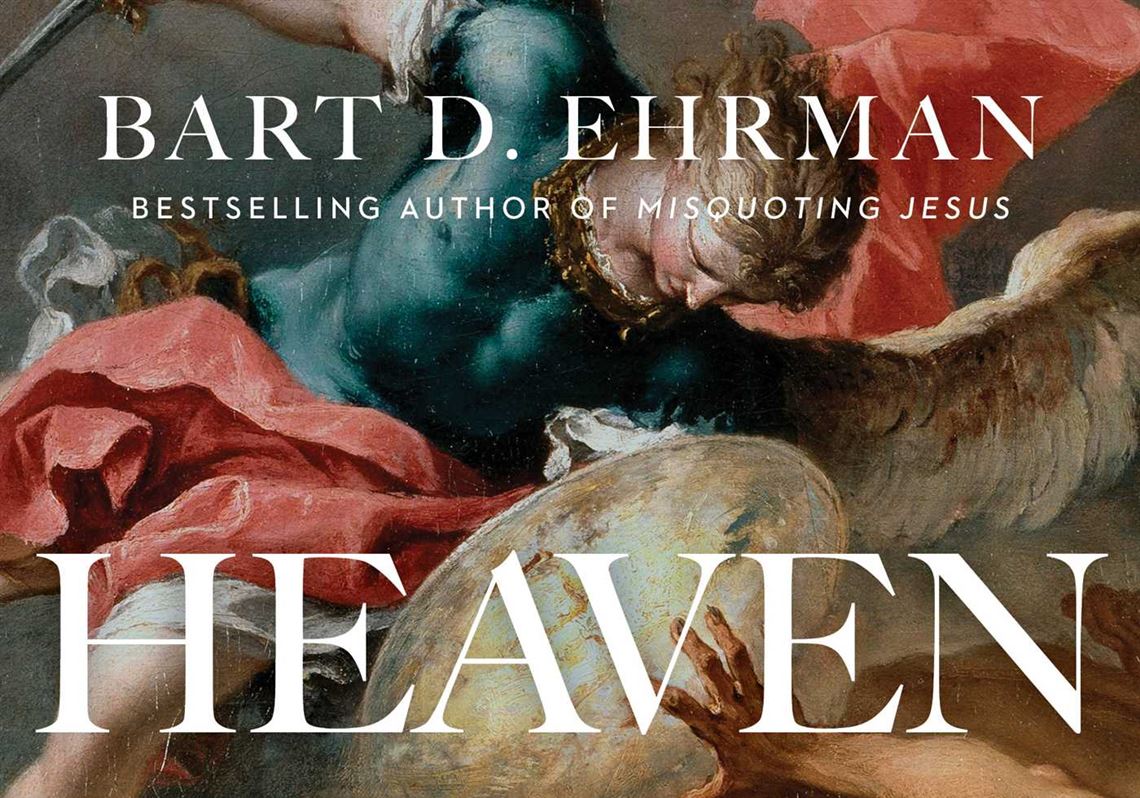“HEAVEN AND HELL: A HISTORY OF THE AFTERLIFE”
By Bart D. Ehrman
Simon and Schuster ($28)
What happens when we die? In the age of science, the simple answer may be that we cease to exist as our organs and brain shut down. Without neural stimulation, can you think (and therefore “I am not”)? However, for millions of Christians as well as those educated in the cultural elements of the Western tradition (literature and art), concepts of heaven and hell still resonate, as metaphors if not literal.
Bart D. Ehrman, James A. Gray Distinguished Professor of Religious Studies at the University of North Carolina at Chapel Hill (“Misquoting Jesus”; “The Triumph of Christianity”), has provided another book on the history of Christianity intended for the lay reader. “Heaven and Hell: A History of the Afterlife” examines the origins of what eventually became standard concepts of reward and punishment in the afterlife.
In a tour of the ancient Mediterranean basin, Mr. Ehrman examines ancient Mesopotamia (The Epic of Gilgamesh), the Jewish Scriptures, schools of philosophy (Plato, Socrates and the concept of the soul), the New Testament, and Christian literature from the formative centuries.
The prophets of Israel claimed that at some future time (the eschaton), God would intervene to restore Israel after a series of catastrophes. After the battles, all the dead will be raised and judged, with the righteous inheriting Eden on Earth (God’s original plan for humans). And the wicked? They are not only killed but annihilated; no hope of restoration and no memory of them, a fate feared even more than death in the ancient world.
Mr. Ehrman then examines the New Testament within this backdrop. With his proclivity to startle his readers, he argues that neither Jesus nor Paul preached anything that resembles the modern concept of “eternal punishment” for sinners or the “blissfulness of heaven.” Both preached the idea of a transformed kingdom on earth for believers in Christ, with annihilation for nonbelievers. When the kingdom did not materialize, it was later Christians who construed the details of heaven and hell as eternal experiences of either joy or suffering.
One must suspend science; how can a dead body feel pain? The older writers as well as their descendants were more concerned with the age-old problem of the existence of evil. Why do the righteous suffer and the wicked prosper? Despite the formation of ancient law-codes, things didn’t always work out as planned (then and now). The righteous often suffer and the wicked sometimes “get away with it.”
Humans have a psychological need for justice. This craving may have led the ancients to project their yearnings into the next level of existence, the afterlife. If not in this world, perhaps in the next, a reckoning would occur. Where texts differed was in detail and scope. As Christians debated each other over correct beliefs (orthodoxy) and as they experienced persecution at the hands of Rome, the punishment for their enemies gets gorier. No longer content with annihilation, nonbelievers and heretics are to be tortured for eternity. The righteous have joys that exceed mortal concepts of space and time.
“Heaven and Hell” is not an easy read. Rather than a developmental chronology, Mr. Ehrman jumps back and forth between various periods. I was quite surprised that he virtually ignores the influence of Egypt. Not only did Egypt create a sophisticated afterlife, but during the Middle Kingdom (ca. 2000 BCE) Egyptians produced “Admonition Texts” (on “morality”): what you do in this life determines your next one.
The most glaring omission in this book is the absence of the evolution of the power that became the Devil. The Devil arrived late in human history (our modern concept is not found in the Jewish Scriptures), but one cannot reflect on the tortures of hell without this dominating figure.
Spoiler Alert: If you want to know if, in fact, heaven and hell exist (and what happens there), you will not get a definite answer. Mr. Ehrman does not believe in either one, nor in the idea that human suffering is part of God’s plan to somehow make us “better for it.” His advice is to concentrate on a good life in this world, which he claims has its own reward.
Rebecca I. Denova, Ph. D., senior lecturer in the Early History of Christianity, Department of Religious Studies, University of Pittsburgh: rid4@pitt.edu.
First Published: April 4, 2020, 2:00 p.m.
















